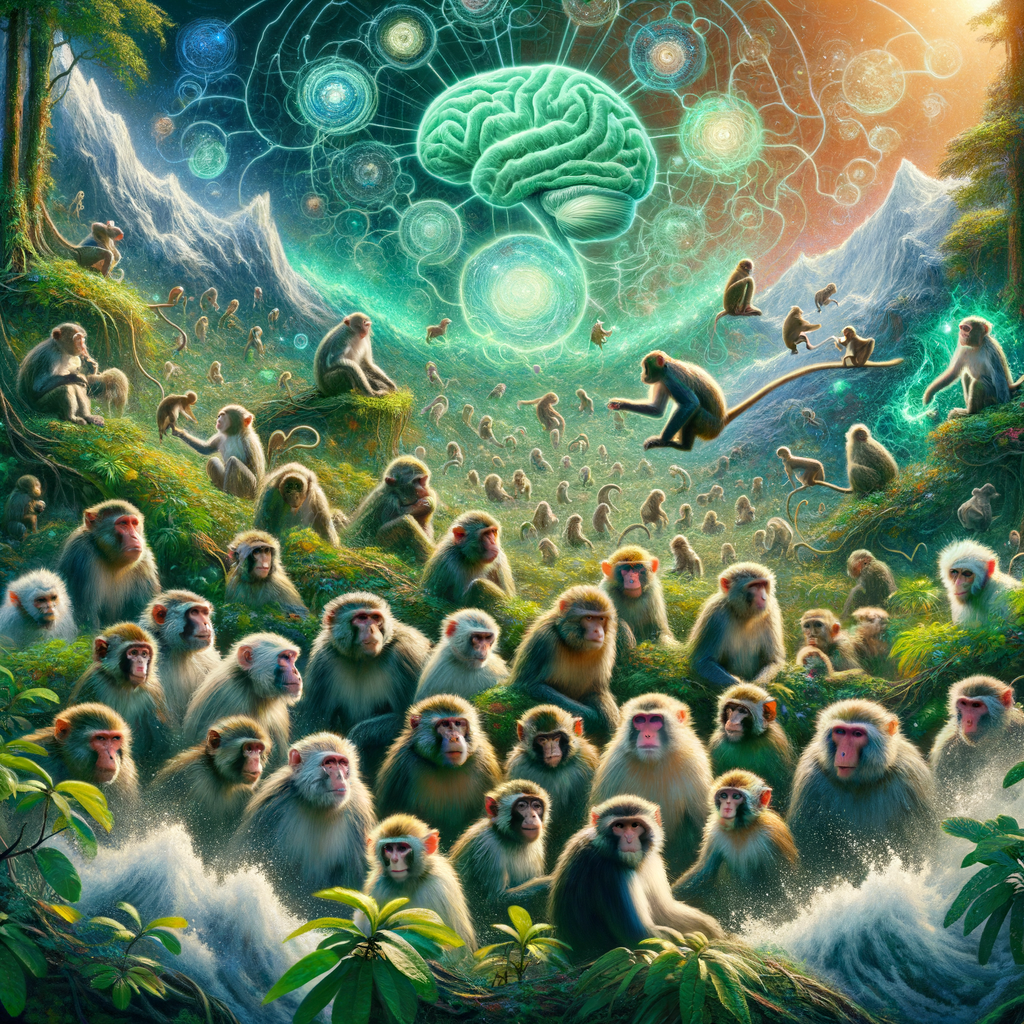The Hundredth Monkey Phenomenon: Understanding Collective Consciousness
The concept of the Hundredth Monkey Phenomenon presents a thought-provoking perspective on how ideas and behaviours can expand and ripple through populations. This phenomenon, which emerged from a fascinating study of monkeys in Japan, has transcended its origins, sparking discussions in fields ranging from psychology to spirituality. This blog post aims to dissect the intricacies of this phenomenon, its implications in various domains, and its relevance to understanding collective consciousness.
Click Here for more information and to read the original book – The Hundredth Monkey.
In December 1981, Ken Keyes Jr, gave his book to the world.
The Origin of the Hundredth Monkey Phenomenon
The idea gained traction in the 1970s through a study conducted by researchers who observed the behaviour of Japanese macaques on Koshima Island. Here are the key points pertaining to the origin of this concept:
- The researchers noticed that a young female monkey learned to wash sweet potatoes before eating them.
- Eventually, this behaviour was adopted by several monkeys, leading to its widespread use.
- Interestingly, once a certain number of monkeys—termed the “Hundredth Monkey“—adopted this practice, monkeys across the island, and even those on other islands, began to exhibit this behaviour without prior exposure.
This phenomenon suggests a form of non-local consciousness where knowledge or behaviours can be shared among a species collectively, regardless of physical distance. Researchers propose that knowledge becomes an interconnected form of consciousness that transcends individual experiences.
Theoretical Implications
The Hundredth Monkey Phenomenon raises several intriguing theories in various fields:
1. Psychological Perspective
In psychology, this phenomenon illustrates the concept of social learning and collective behaviour. The potential for sudden shifts in group behaviour can be observed in:
- Group Dynamics: Individuals may conform to new ideas or behaviours if they see a significant portion of the group adopting them.
- Cultural Shifts: Widespread acceptance or disapproval of new cultural practices can occur rapidly once a critical mass is reached.
2. Sociological Implications
From a sociological viewpoint, the Hundredth Monkey Phenomenon can be linked to the dynamics of social movements. The movement of ideas and practices through a society can be catalysed once they penetrate a particular threshold:
- Initiation: A small group starts embracing a new idea or practice.
- Adoption: As more individuals join in, the behaviour gains visibility and acceptance.
- Transformation: The idea or practice becomes mainstream, and societal norms shift.
3. Spiritual Interpretation
In spiritual circles, the Hundredth Monkey serves as a metaphor for the awakening of collective consciousness. Some beliefs assert that:
- Humanity is interconnected, and shifts in individual consciousness can lead to shifts in collective awareness.
- The achievement of critical mass can bring about significant changes in societal beliefs and actions toward greater unity and understanding.
Applications in Modern Society
Today, the Hundredth Monkey Phenomenon can be observed in several applications that resonate with contemporary issues:
- Environmental Movements: The rapid adoption of eco-friendly practices, such as reducing plastic usage, illustrates how a critical number of people can inspire global change.
- Technological Advancements: The swift integration and acceptance of new technologies often occur once a pivotal number of users endorses them.
- Health Initiatives: Public health campaigns can experience exponential success following the widespread adoption of first movements or practices, such as vaccination.
Conclusion
The Hundredth Monkey Phenomenon remains a compelling illustration of how behaviours and ideas can spread within a community and beyond, challenging our understanding of individual versus collective influence. Whether viewed through a psychological, sociological, or spiritual lens, the implications of this phenomenon can serve as invaluable insights for those seeking to create change in various aspects of life.
As we navigate our rapidly changing world, recognizing the interconnectedness of our thoughts and actions becomes crucial in fostering a more conscious and unified global society.
There you have it… What’s your take on the whole thing?…
Campbell M Gold
To Create Health, Wealth, Success, and Longevity through the Power of Your Subconscious Mind, Visit: Campbell M Gold.com
Visit The Store and see what else can be of help


